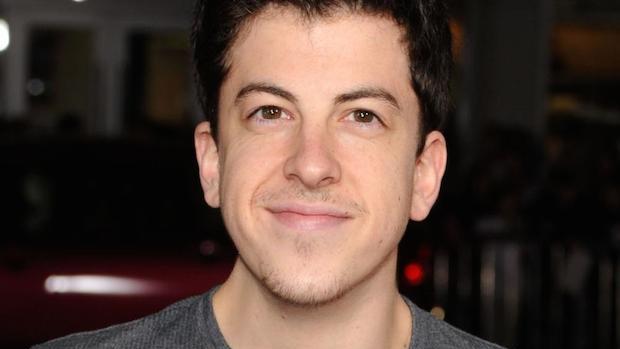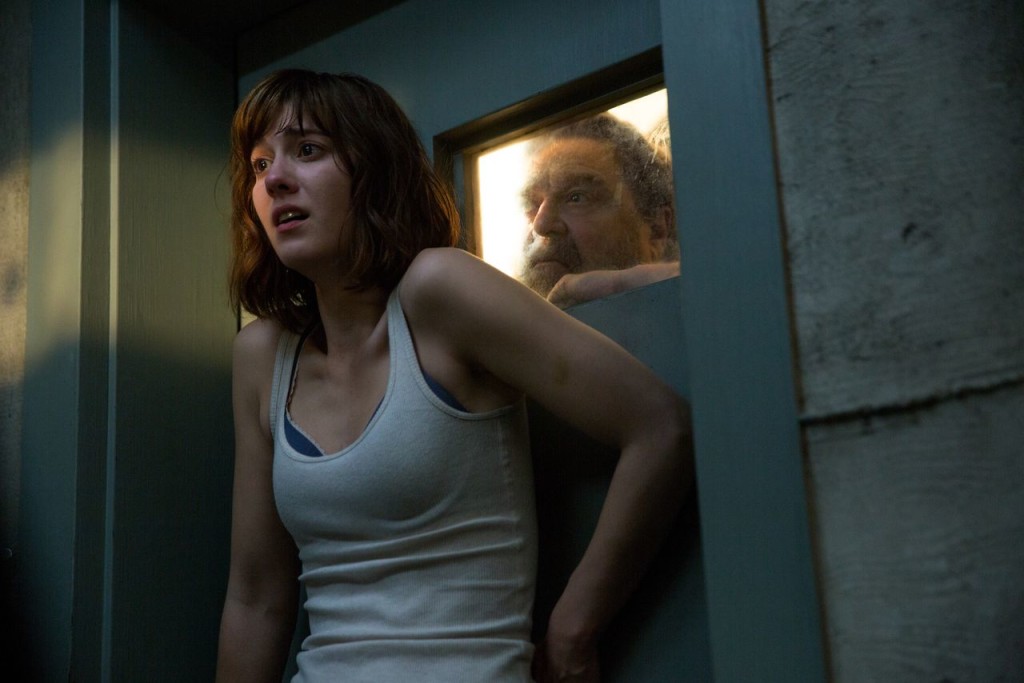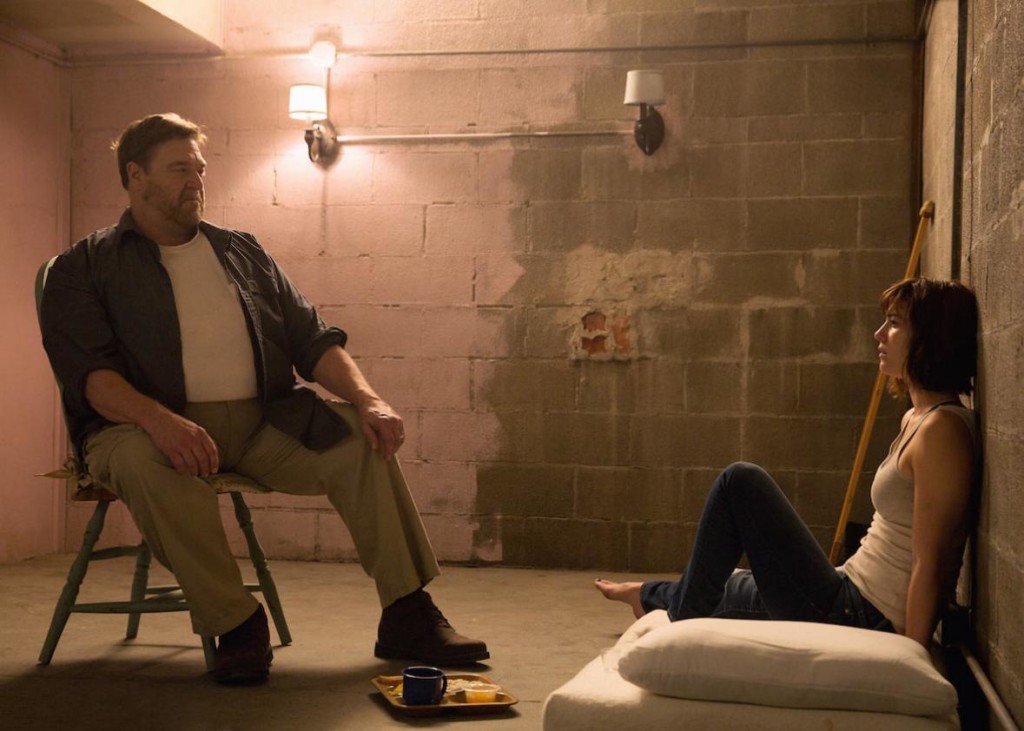A HUGE shout out to yesterday’s mini-contest scene winner. Deanb absolutely NAILED the “show two people fall in love without any dialogue” scene. Head back and sort the comments by “best” to read his killer interpretation of the challenge. Also, Nick Morris finished in second place with a strong emotionally charged scene of his own. You guys exceeded my expectations with this challenge. Congrats!
Genre: Thriller/Anthology (aimed at Netflix/Amazon/HBO, etc)
Logline: When the main suspect commits suicide on the twentieth anniversary of her mother’s disappearance, a woman soon finds out that everything she held true about what happened all those years ago is shattered and she must partner with an unstable Texas Ranger to save her own life and uncover the truth.
Why You Should Read: I grew up in a small Texas town (pop. 2000). After a local woman simply vanished in the ’90’s, I would listen to my dad come in late at night and tell my mother about the case, which he was investigating. The stories were replete with local scoundrels, psychics, and drugs. — Even as I entered adulthood and went on in the world, the case never left my psyche. It’s exacerbated each time I see her daughter, who was a few years younger than me, posting on Facebook each year on the anniversary. — Although the real-life story and my version are vastly different, I still owe the seed being planted, so many years ago, to those late night stories about the case. A case that I feel is hard for me to let go of emotionally, although I have no deep personal connection to any of the parties that were involved.
Writer:Randall Alexander
Details: 63 pages
I’m on a Scriptshadow Reader high right now. Last week’s amateur script was kick ass. The scenes you guys have been writing for the Scriptshadow Lesson series have been awesome. I just feel like the hardcore readers of this site are starting to come into their own. It’s all starting to click.
And it goes to show that this strange code known as screenwriting can be cracked with hard work and perseverance. You target the key areas of the craft (structure, drama, character, dialogue, goals, stakes, urgency, obstacles) and try and master them one by one. Once you have a good feel for all of them and you pick the right concept? You’re going to write something good.
The Remains feels like it’s going to continue the hot streak. The script won a lot of fans over last Saturday, and Randall’s passion for the material ensured that we weren’t going to get some run-of-the-mill AMC clone. Let’s check it out!
Trina Littlejohn is 30 and has a beautiful young daughter and a brother she loves more than anything. But Trina’s been carrying a monkey on her back since she was a child. Her mother disappeared 20 years ago and she’s convinced that her neighbor, Red, killed her.
This has caused a really awkward 20 years in the community as Trina and her brother, Jesse, have dedicated their lives to making Red’s life hell. And when Jesse is released from his latest stint in prison for beating the shit out of Red, he and Trina are shocked to find that Red has hanged himself.
Trina has mixed feelings about this. Yeah, the asshole’s finally dead, but now he’ll never be able to tell them where he buried their mom.
As if that isn’t frustrating enough, there’s a new cop in town, Shane Webb, a Texas Ranger who isn’t buying into this whole suicide scenario. I mean, what suicide victim handcuffs himself before a hanging? Is that even physically possible?
Maybe what Trina’s really afraid of is if Shane is right. What if someone framed Red’s suicide? And if that’s the case, why did they do it? Could it be to stop Trina from looking into her mother’s disappearance. Could it be to stop her from finding out what really happened that day?
The Remains is like a lot of scripts I read. It’s really good in places. And not so good in others. This is the issue that holds back a lot of “almost there” writers.
Inconsistency.
It’s no different at the top of any profession. What’s the difference between Joe Benchwarmer and Lebron James? Joe Benchwarmer can occasionally throw down the dunk to end all dunks. But he can’t do it consistently. Lebron James is able to do it every single night.
A script isn’t going anywhere if you write a great opening scene, followed by two decent scenes, followed by three not-so-good scenes, followed by another good scene, followed by a bad scene… You have to bring it scene-in and scene-out.
The Remains starts off great. Our main character has stashed someone in her trunk and is driving him somewhere to kill him. All the while, she’s giving us a smoothly constructed voice-over of who she is and what’s most important to her. I’d give this scene an “A.”
But then things get clunky when we realize (I think) that the opening scene was a flash-forward. And quickly after bouncing back to the present, we get a flashback scene (to Trina’s childhood). One of the reasons I dislike flashbacks is because they ask the reader to split their brain in two. On one side, they’re told to keep up with the present-day storyline, and on the other, they’re told to keep up with the past storyline.
Things get even more complicated with every new time frame you add. And that’s what happened here. My mind started doing somersaults trying to figure out where we were. And when you’re telling a story, the last thing you want your reader expending energy on is “Where are we again?”
Also, once you get into three-timeline territory, you’re presenting the possibility of four, five, six, seven timelines. Where does the time-jumping end? Your reader doesn’t know. And when they don’t know, they start wondering where they are.
I’ll give you an example. The movie starts with Trina drilling into our heads how important family is. So when Jesse gets out of prison, why isn’t Trina picking him up???? Trina has pretty much been YELLING AT US for the past five pages how important family is, yet she doesn’t pick up her only brother from prison??
For this reason, I assumed we had to be in a fourth timeline where Trina couldn’t pick Jesse up for some reason. That’s the kind of thing that happens when you start fucking around with multiple timeline trickery. Our answer to confusion is, “Oh, we must be in another timeline.”
After that, the script starts to pick back up. Randall lets us in on all the valuable pieces of information he’s been keeping from us (who is this woman everyone keeps talking about? who is this man Trina keeps screaming at?) but by that point, I was so frustrated with how much energy I had to expend just to keep up with basic plot points, I’d checked out.
And it’s too bad, because the pilot does set up an intriguing mystery. And the characters were really well-developed and given the kind of depth required for a long-running TV series. But we have a simple story here that was muddled up due to too many bells and whistles.
Now whether those bells and whistles could work with a “clarity rewrite” or they need to be ditched altogether, I can’t say. I’d need to see the clearer version first. But I do believe the lesson of the day is one I’ve droned on about for years now: You go down Complex Avenue and you’re asking for trouble. Keep it here on Simple Street.
Script link: The Remains
[ ] what the hell did I just read?
[x] wasn’t for me
[ ] worth the read
[ ] impressive
[ ] genius
What I learned: There’s a fine line between being clever and being too cute. Time-jumping is fun. Keeping important details from the audience for extended periods of time is fun. But if you go overboard with those sorts of things, you’re no longer serving the story. You’re serving yourself. Stop trying to be too cute and just tell your story.
Today we’re going to explore one of the most important components in the craft of screenwriting – visual storytelling. If you can master this part of the craft, you’ll have seriously leveled up. That’s no joke. The best writers tend to be the ones who consistently convey things visually.
Why is this? Because ACTIONS SPEAK LOUDER THAN WORDS. The action of an unexpected kiss will always be more interesting than two lovers talking about how much they like one another. The action of a character turning his gun away from his enemy and towards his friend will always be more interesting than him telling his friend he’s betraying him.
Visual storytelling can be broken down into four components.
Action
Framing
Choice
Creativity
The heart of the visual scene is action. Instead of a character saying something, see if you can achieve the same thing with an action. So instead of a character saying, “You look cold,” have him take his coat off and hand it to the other character.
Framing is the process by which you re-frame what would typically be a dialogue scene and turn it into something that can be conveyed through action. So let’s say you’ve thought up this big blowout break-up scene outside of a night club. To write this same scene visually, why not put it in the night club? The noise will force you to show the breakup through actions.
Choice is like action on crack. You give your character a choice (or a series of choices) and those choices give us insight into the character (as well as push the scene forward). At the end of Nightcrawler, Jake Gyllenhaal’s character comes upon a murder where the victim is still barely alive. Does he call an ambulance or get the footage that’s going to net him his biggest payday yet? That choice is what makes the scene so compelling.
Creativity is the final piece of the puzzle. Come up with a neat or inventive way to visually tell your story. I’ll never forget one of the commenters bringing up Ben Kingsley’s movie, You Kill Me, where Kingsley played an alcoholic. To show this, the movie opens with Kingsley shoveling snow while drinking a bottle of vodka. He’d toss the bottle a few feet forward in the snow, shovel to it, take a drink, toss it a few more feet, shovel to it, take another drink, and so on.
999 out of 1000 writers would’ve shown the character in a bar getting cut off at the end of the night, or waking up on their couch with an empty liquor bottle nearby (and a bad headache). This writer’s desire to push beyond the obvious, to be creative, led to a way more interesting visual scene.
Now what you may notice is that a lot of great visual scenes have dialogue in them as well. The climactic scene of Luke blowing up the Death Star isn’t dialogue free. We see him make the choice to use the Force instead of his targeting system, but it still contains some discussion with the base. And that’s fine. Dialogue and action are teammates, fighting the same opponent, trying to win the same game.
All I’m saying is that scenes tend to be more interesting when they’re first approached visually. And if the scene still feels incomplete after that, you can always sprinkle dialogue in where it’s needed. If you only ever see a scene through the words the characters speak, you’re probably writing a lot of boring scenes.
Okay, now time for today’s scene challenge. In this pretend movie, our main characters, Claire and Nick, are a married couple who have been together for 20 years. But that’s not where we start. We start on the day they met, where Nick spots Claire on the street and is instantly smitten with her. I want you to show us, in a single scene, how Claire fell in love with Nick that day. Not just, “Oh, he’s cute, I’ll go on a date with him.” She has to FALL IN LOVE with him right then and there.
You don’t have to use anything I taught you today. You can make up your own visual rules. The only stipulation is that the scene can’t have any dialogue. Write your scene in the comments below and make sure to up-vote your favorites! Winner gets a shout-out tomorrow and Scriptshadow brownie points. Good luck!
Genre: Horror
Premise: Years after two girls sacrifice their friend to an entity they refer to as “the boy,” the less violent of the two gets out of prison and tries to rejoin society, only to start seeing the boy all over again.
About: This script finished second on the 2015 Blood List to “Eli.” Writer Owen Egerton has a couple of low-budget produced credits, but this is the first time he’s written a genre piece. Take note my friends. You want Hollywood to start looking your way, write in a genre they like to sell movies in. Simple as that.
Writer: Owen Egerton
Details: 96 pages – 5/28/15 draft
Forgive me Lord of Films for what I am about to say.
Raiders is a dead franchise.
And if we’re really being honest? It was a dead franchise since the second the first sequel came out. They haven’t made one good Indiana Jones film after the first one. “Oh, but the third one, Carson! The third one was good!” No it wasn’t. It was a little bit better than the second one, which sucked so everybody was TRICKED into thinking it was good, much like Revenge of the Sith was a bad movie but looked good after Attack of the Clones.
Why are they making ANOTHER Indy movie? We’ve already got our awkward old Indiana Jones film to watch if we so desire. Now you’re going to add a really old Indiana Jones film to the mix? The man is going to be 80. I know Harrison Ford stays in great shape but come on. Say this out loud: “I’m going to watch a movie with an 80 year old action hero.” That’s like trying to pass Betty White off as Jennifer Lawrence. No amount of make-up, lighting, or Hollywood trickery is going to help.
I’m really confused, guys. Between this and Ghostbusters XX chromosome edition, we’ve taken nostalgia to an uncomfortable level. And what does it say about nostalgia when all of it sucks? Aren’t you killing nostalgia when you do that? Aren’t we killing the very thing we desire?
I could talk about this all day but we do have a script to review, one that doesn’t have Indiana Jones in it, thank god. But it does contain an old horror trope that threatens to turn our horror tale into a cliche. Will that choice doom today’s offering? Or will the script manage enough originality to come out on the right side of the pile? Let’s find out, boy!
Pre-teen friends Rebecca, Marina, and Lily are puttering through a dying forest on an overcast day, seemingly enjoying each other’s company, when all of a sudden Rebecca grabs a rock and cracks it over the back of Lily’s head. As Lily lays dying, Rebecca demands that Marina drag her into the lake and drown her, all in the name of pleasing “him.”
“Him” is the “the boy,” a ghost child from the early 20th century who’s become the girls’ friend, but only if they sacrifice their buddy for him. Rebecca and Marina complete the sacrifice, but since they’re 12, aren’t exactly whizzes at covering up the crime. As a result, they each go off to separate juvenile halls, and eventually to prison.
Marina gets out when she’s still in her 20s and moves in with her older sister, Alice, who’s helping her sister mainly out of guilt for not visiting her. Alice has an 8 year old son, Bryce, who takes a liking to Marina, until he finds out about her past. When he does, he starts looking up “the boy” online and becoming obsessed with him.
Also obsessed with Marina and the boy is Alice’s dick boyfriend, Will, who keeps trying to get Marina to co-write a book about the incident in hopes of cashing in. It doesn’t take long for Alice to dump his ass. Unfortunately (or fortunately, depending on how you look at it), only a few days later, Will turns up dead. Guess he can write his book in dead font.
Around this time, Bryce begins acting funny, and hints to Marina that he now sees the boy too. Marina has spent every day since she was 12 convincing herself that the boy was a figment of her imagination. And now Bryce has to come along and screw that all up.
Eventually, Marina heads off to find the third member of this equation, good old Rebecca. But Rebecca’s not doing so hot. And her visit leads Marina to find a horrible truth, one that will come back to haunt her, and one that will finally shed light on what happened that day in the forest.
The Boy is a good example of a well-executed horror premise… and nothing more.
This isn’t to disqualify the script. Writing anything that keeps a reader’s interest the whole way through is amazing. 99 out of a 100 scripts cannot achieve this. Shit, 70 out of 100 scripts can’t keep you interested past page 5! So let’s not discount what Egerton’s achieved here.
But The Boy’s fatal flaw is that it doesn’t take chances. Chances are what separate your script from other well-written material – the special sauce that helps it rise above “worth the read.”
Instead, The Boy hits all the typical beats these kinds of movies hit. The creepy boy who appears in the corners of rooms, who leaves notes in crayon, who’s there and once you blink he’s gone. We’ve got the “researching the boy’s past” section, and of course the big fire that killed him and his family.
I was invested, but all of these familiar story beats kept a little bell ringing in my ear: “You’ve seen this before.” “You’ve seen this before.” “You’ve seen this before.” The writer seems to go out of his way to remind you that you’ve already lived through this ghost tale.
That’s not to say The Boy didn’t show flashes. For example, there’s a moment when Marina moves in with sis and nephew and they’re having dinner for the first time. Alice and Bryce are about to chow down but stop when they see Marina whispering grace to herself.
Why does this moment matter? Because it shows that the writer is thinking about what these characters’ lives must really be like. Marina has spent her entire adult life in prison. Knowing that prison is a religious place, Egerton surmised that Marina would probably be religious. And because he included that specificity, Marina felt real to us.
A huge mistake beginner writers make is they don’t think to differentiate their characters. They construct any perceived differences in their characters on “feel.” To them, Marina “feels” different from Alice in their head, and therefore that difference will come across naturally on the page.
That’s not how screenwriting works, unfortunately. For readers to see differences, they must see DIFFERENCES IN ACTION. If one character says grace while another says nothing, that signifies to them a difference in character.
Speaking of character, Egerton made a critical choice early on to show us the original flashback where the girls attack their friend. He then keeps us with Marina so that we see her grow up in juvie and prison.
This allows us to get to know Marina so that when she moves in with Alice, we feel like we know her. I’ve seen the opposite approach to this where writers start with their hero as they’re getting out of prison. The advantage to this is that Marina is more of a mystery to us, and the hope is that the reader will want to stick around to learn about her.
Both choices are valid, but the first stresses character development, making us feel closer to the character. Since connection between hero and reader is one of the most important things in storytelling, this is a smart way to go.
Now advanced writers can pull that kind of connection off quickly (sometimes in a single scene!). So they might go with the mystery approach, knowing that when they need you to connect, they can do so quickly. But when you’re still in the learning stages of the craft, taking the longer drawn-out approach is probably the safer bet.
The Boy also has a couple of memorable scenes, which is essential for any good horror script. Marina’s visit with adult Rebecca freaked me out. And I’ll be the first to admit I didn’t see the ending coming. Bryce potentially being the new version of “the boy” also lead to a couple of nice moments.
Still, I kept waiting for this to distinguish itself as its own screenplay and not an ode to all the similar films that came before it. But it never did. And that left me sad. Sad like the boy.
[ ] what the hell did I just read?
[ ] wasn’t for me
[x] worth the read
[ ] impressive
[ ] genius
What I learned: The easiest way to show differences in characters is to place them in the same situation and have them act differently. In the example I mentioned above, where Marina says grace and Alice does not – that difference hits us right between the eyes. That doesn’t happen if, say, we show Marina go to church while Alice is at work. We’d know Marina was religious, but miss out on the opportunity to show that Alice isn’t.
Genre: TV Pilot – Sitcom
Premise: A 30-something writer for an outdoors magazine suffers an injury that forces him to work back at the company offices, where the magazine is run by a bunch of delicate millennials with zero outdoors experience.
About: This is a new sitcom coming to CBS which snagged the most in-demand comedy talent on the 2016 market in Community star Joel McHale. McHale will be joined by McLovin who is mclovin the fact that he’s finally got a job.
Writer/Creator: Mike Gibbons
Details: 46 pages
As those of you who follow me on Twitter know, Joel McHale and I are workout buddies. And by workout buddies I mean we work out at the same gym (Gold’s Hollywood if anyone wants to join us) and occasionally use machines that are in close proximity to one another.
Okay, if we’re being totally honest, this proximity thing has only happened a couple of times. But there was one time when Joel was walking towards me and smiled in such a way that it was either meant for me or the guy behind me. Which it’s fair to say can be counted as a half-smile towards me. Which basically means we’re best friends.
In all seriousness, after a few complaints in the comments section of Pilot Submission Saturday, I felt bad that I didn’t choose a single half-hour comedy. In my defense, I don’t understand the appeal of shows like The Big Bang Theory or Mom. And a lot of that comes from the fact that the half-hour comedy has evolved out of the 3-camera format into something more creative, thanks to shows like The Office, Modern Family, and Community.
So consider today’s a review a test. Because I LOVE the talent involved in today’s pilot. You have my buddy Joel McHale. You have McLovin, who’s so cool that his famous character is just as popular today as it was ten years ago. And you have Mike Gibbons.
Now Gibbons is a name you probably don’t know yet but you should. He’s the head writer on the best late night show on television, the amazing James Corden show (if you haven’t watched it yet, do so tonight. I guarantee it’ll bring a smile to your face).
All of this is a long-winded way of saying if TODAY’S script doesn’t win me over, then no multi-camera sit com is going to do so. Because I love what all these guys bring to the table. So grab your tea-coffee chais and your bacon-maple donuts you hipsters, and join me for a plot breakdown that I pray I’ll like.
35 year-old Joel (yes, the character Joel plays is also named “Joel”) has been forced into a position he promised himself he’d never be in – taking a desk job. It’s not Joel’s fault. He was out climbing the world’s tallest mountain when a bad fall messed up his leg, ending his mountain-climbing career instantly.
To make matters worse, Joel works at an outdoors magazine run by 20-something hipster douches whose idea of mountain climbing is clicking through Yelp reviews of restaurants that are on a hill. In a world where Joel wants to write serious articles about running out of oxygen at 25,000 feet, his hipster cohorts would rather write about the five best mountain-climbing tools to have should the zombie apocalypse arrive.
All the garden-variety sit-com tropes are in place, like the female lead whose only job it is to inject sexual tension into each episode. Oh, and let’s not forget the token black friend who lets our hero stay at his place while he gets back on his feet (except for the days when he’s Air BnB’ing his house!).
Despite the fact that when you take the ‘i’ out of ‘pilot’ you’re left with ‘plot,’ I couldn’t find anything resembling such a thing in this episode. There may have been a magazine-wide pitch due at the end of the show but you’d be hard pressed to point out where they set this up.
In the end, despite Joel hating his new job, he decides to give it a shot because if he doesn’t there wouldn’t be a show. Which, to be honest, probably would’ve been better for his career. I know that CBS is the only network that still understands the classic sit-com format. But I’d be surprised if even they could make this one work.
One of the terrible things about sit-coms is that when they’re bad, theyre realllllly bad. As in they go south faster than a Irish woman on St. Patty’s day. Something about the fact that you’re hearing laughter when things are so clearly unfunny makes how not-funny they are even more noticeable.
Did you ever watch that awful Sean Hayes sitcom from a year ago? And how bout that Mark Paul Gossler sitcom about married life that came and went faster than a Sascha Baron Cohen opening weekend? The Great Indoors feels like a combination of those two shows.
And it’s driving me crazy trying to figure out why my workout buddy agreed to do this. This is a man who participated in one of the most edgy comedies of the last half-decade. And now he’s doing traditional sit-coms?? That’s like racking a three-plate bench press then going to the warm-up area to do push-ups.
There was only one joke in the entire script that I hadn’t seen before, and that’s when Joel had to go to HR for making a millennial cry. Laughter had become such a foreign concept during this read, that I immediately felt guilty for doing so, sort of like I’d just giggled at a crippled man who’d fallen out of his wheelchair.
A big reason for the lack of laughter came from how lame these characters were. One of the things I always push upon writers is that you want to create three-dimensional characters. These characters were the antithesis of this. They were one-dimensional to the core. As in you pick one trait per character and hit on it over and over and over again until you want to stick your forehead in a 1920s printing press.
And look, one of my favorite shows ever was Seinfeld. Those characters were pretty one-dimensional themselves. But at least that show was trying to do something different! It didn’t follow the traditional sit-com format. It centered on the minutia of everyday life. This meant that at least one aspect of the show was taking us into unfamiliar territory.
The Great Indoors is a premise lost in its 1950s treatment of the format. Which is ironic because it’s supposed to be about this new generation of hipsters who are changing the work game.
I mean, shit, The Intern covered millennials 100 times better than this, giving each of its characters multiple traits (Adam Devine’s character wasn’t just the clueless millennial who spent all day on Facebook, but also a good friend to Robert DeNiro who helped him feel at home at the company). When you’re getting beat out by Nancy Meyers for character depth, you may want to reevaluate your teleplay.
I don’t get it guys. Why isn’t this format extinct? Everything about it is played out. And outside of the premise itself, there isn’t a single thing that’s new here. Wake me up when this format disappears.
[ ] what the hell did I just read?
[x] wasn’t for me
[ ] worth the read
[ ] impressive
[ ] genius
What I learned: I’ll qualify this by saying I’m not an expert on sitcoms, but I’ve always found that no matter WHAT you’re writing, it works best when you come up with a story first, then squeeze your setup in around that. Scripts are much less successful when you focus on setting up your world first, then try to squeeze in a story around that. The Great Indoors does the latter, leaving everything feeling forced, exposition-heavy, and worst of all, not very entertaining.
What happens when you switch a whole lot of shit around in a great script? Today’s script-to-screen breakdown tells you!
Genre: Contained Thriller/Sci-fi
Premise: (IMDB) After getting in a car accident, a woman is held in a shelter with two men, who claim the outside world is affected by a widespread chemical attack.
About: This movie has had a weird journey. It started as a spec script unrelated to the Cloverfield franchise. You can check out my review of that script here. Then Bad Robot bought it and decided to turn it into a Cloverfield thing. The film came out this past weekend and did really well for a contained thriller, pulling in 25 million dollars off of a 15 million dollar budget. For comparison’s sake, the new Sascha Baron Cohen film pulled in 3 million dollars on a 60 million dollar budget (I’m sensing a Borat sequel very soon). The film’s success also hinted at a new avenue for screenwriters – writing specs that you can sneak into existing franchises.
Details: 103 minutes
Writers: Josh Campbell & Matthew Stuecken and Damien Chapelle
Cloverfield Lane has to be one of the strangest script-to-screens I’ve done so far. That’s because the writers changed a whole shitload of little things despite the fact that they didn’t have to. Nothing was wrong with the previous script. And yet despite all these changes, the movie still worked. In fact, BOTH versions of the screenplay worked great.
This goes to show that when you have a good premise or a good setup, it’s hard to screw things up. Sort of like how if you have good bone structure, it doesn’t matter if you grow a beard or have a strange haircut. What’s underneath is so structurally sound that you’re still going to look good regardless. This doesn’t even get into the final 20 minutes of the film, which I’ll be spoiling later in the review (You’ve had your warning!). So let’s get into it.
For those who didn’t read my previous review or see the movie, here’s a quick breakdown of the plot. A young woman, Michelle, wakes up in a room, chained to the wall, with no idea of how she got there. Eventually, Howard, an older large man and the owner of this place, comes in and tells Michelle that he saved her life.
He proceeds to tell her that they’re in an underground bunker and that the United States has been attacked by some sort of chemical weapon, which means they’re stuck here for two years. Also living in the bunker is the young man who helped Howard build it, Emmett. Michelle has her doubts that any of what Howard has told her is true and begins plotting her escape. But as the old saying goes, “Be careful what you wish for.”
Right away you noticed differences between the script and the movie. First off, instead of starting with Michelle waking up in the room, they start with her in the real world – first at home, then driving her car, then getting hit by another car and crashing.
I was shocked to see this. One of the most intriguing things about the original script was that we didn’t know if anything Howard was telling Michelle was real. He’d say he found her in a car, but both she and we were wondering, “Did he?” Here, we know he’s telling the truth since we saw it with our own eyes. This stole a lot of the mystery away from the script, and I’m still not sure why they did it.
I know that sometimes when a production is given more money (as is the case when you go from a contained no-budget thriller to a Cloverfield film), they feel like they have to use it somewhere, and therefore stick in some high-production-value shots at the opening of the film to show you, “This is a big movie.”
They made the exact same mistake with Source Code. It was critical in that film that we wake up with the main character in a train with no idea where we were or how we got there. Instead, they had some costly opening crane/drone shots of a train shooting down the tracks. Sometimes, less money can be better, as it means less temptation.
Anyway, once we’re in the room, waking up with Michelle, I noticed we were drawing this scene out way longer than in the original script. In the original script, Michelle wakes up, and a minute later this guy comes in, she attacks him, fails, and he tells her, “I’m here to help you!” Here, we stay with Michelle for awhile as she tries to figure out how to get out of the room.
I can understand this choice better. You’re in a contained location. It’s easy for things to become boring. You want to draw out any potential suspenseful situation you can. A girl waking up in a room without any idea of how she got there is inherently suspenseful, so I liked that we stayed with her for awhile as she tried to solve the problem.
Next up is Howard. In the original script, Howard has a meekness about him. In the new version, he’s much more dangerous. He has more of a “you need to walk around on eggshells around him” quality. It was an interesting choice because it definitely made the character more powerful. But one of the strengths of the previous version of the character was that even though he was meek, you had the sense that he could become dangerous at any moment. And we were always waiting for that dangerous moment to arrive.
Here, we know Howard is capable of being horrible from the get-go and it takes some of that mystery away. I’m still not sure how I feel about it. On the surface, he’s a more memorable character. But the other incarnation may have been better for the overall story.
Then there’s Emmett. Poor Emmett. Emmett was this cool dangerous unpredictable character in the last script. Here he’s a boring nice guy. If you’re like me, you’re probably wondering, “Why did they do that???” I’ll tell you exactly why. Once they changed Howard’s character into a more surface-level badass, he became too close in tone to Emmett. So they had to change Emmett’s character to complement him. Unfortunately, Emmett’s fate as an interesting character was sealed.
This felt to me like a “ran out of time” choice. Emmett is the third most important character in the script, and therefore the one that they’re not going to worry about until they have Howard and Michelle figured out. Once that happened, the obvious choice to complement Howard was to go “nice.” With more time, I’m sure they would’ve tweaked this, made Emmett nice-but-with-an-edge. But hey, it’s hard to be perfect in any screenplay.
A result of this choice was that there’s no longer an “Are they collaborating?” element to Howard and Emmett’s storyline. That was one of the strongest parts of the previous script so I’m surprised they removed that. However, someone pointed out in the comments of my previous review that there’s a famous play and/or short story that sets up this exact same premise, so I’m wondering if they dropped that simply to avoid a potential lawsuit. Man, writing screenplays is complicated!
Finally, there’s Michelle. They definitely improved this character, making her much more active. From the very first scene, she’s using tools to create an elaborate hook to drag her phone towards her while chained to the wall. Later she’s using liquor to create fires to force Howard to take her out of the room. She’s always thinking, always trying to escape. It wasn’t like she was passive in the last script. But she’s aggressively active here, and that has a huge effect on how we view her. It’s nearly impossible to dislike a character who’s in a bad situation yet won’t stop fighting. So that was another smart choice.
Finally, there’s the ending. This is spoiler territory and I’m not even sure it’s worth discussing, to be honest. Basically, the last 20 minutes of this movie became a completely different genre, which is totally bizarre. Now I knew this was coming, so it’s hard to gauge how successful the choice was. But I’m curious what people who had no idea what to expect thought when, all of a sudden, our main character is fighting aliens and spaceships. It’s a really weird way to end the movie.
But I have to admit, the nerdy side of me was desperately trying to figure out how this linked up with the original Cloverfield. In that movie, we had a giant monster. Here we have a fucking spaceship. What does that mean?? I want more Cloverfield movies to find out! I’m actually surprised that they still haven’t created a direct sequel to that surprise hit.
Anyway, like I said, this setup was so strong that the execution was malleable to the point where several hundred choices could’ve worked. So besides the lesson I’m about to teach you below, the takeaway here is: come up with a concept with strong bones.
[ ] what the hell did I just watch?
[ ] wasn’t for me
[ ] worth the price of admission
[x] impressive
[ ] genius
What I learned: Today we’re going to talk about the concept of EXPANDING. Expanding is something you’ll do between drafts. It’s the process by which you look for potentially dramatic situations within your scenes to create new “mini” or full scenes from. The final draft of Cloverfield Lane did a lot of expanding. For example, in the spec script, Michelle wakes up in that room, hears someone coming, and prepares to hit him. The writers of the script expanded this for the final cut. They decided that the first thing Michelle would try to do was call someone. But her phone was all the way across the room in her bag and she was chained to the wall. So Michelle has to use the objects around her to construct a pole which she then uses to reach across and pull the bag towards her, all with the threat of that man potentially coming in at any moment. There are expandable scenes everywhere. You just have to look for them.








